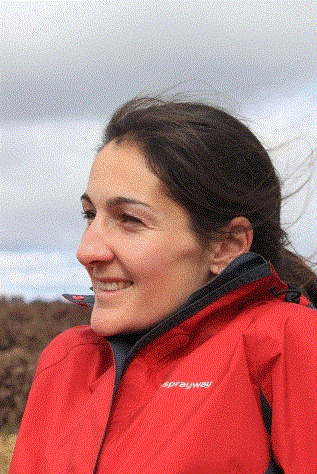Dr Kerry Kilshaw
Research Staff
I obtained a BSc in Biological Sciences from the University of Birmingham in 1998. Following my degree, I spent three years working for the Centre for Hydrology and Ecology, in Oxford, on genetically modified bacteria. In 1999, I took a three month break from laboratory work to join a Raleigh International Expedition to Oman where I was part of a variety of projects, one of which involved surveying for the endangered Arabian leopard. In 2002 I obtained an MSc in Biodiversity and Conservation from University of Leeds.
After my MSc I joined WildCRU as a volunteer on the badger perturbation project. This was followed by a brief period in Botswana carrying out research on brown hyenas and caracals for the African Conservation Trust, before I was offered a Mammals Trust Internship at WildCRU examining latrine use in badgers. I have a passion for small carnivores in general and a particular passion for desert mammals.
Since 2003 I have carried out a variety of projects at WildCRU on small carnivores, with the past 5 years focusing on the Scottish wildcat. In October 2010 I started a DPhil looking at the current status and distribution of the Scottish wildcat as part of WildCRU’s ongoing Scottish Wildcat Research.
To date, my research on the Scottish wildcat has involved the following:
1. A study on the feasibility of feral cat control in the Cairngorms National Park in order to benefit the conservation of the Scottish wildcat.
2. A comparison of the genetic and pelage characteristics to determine whether the wildcat pelage characteristics identified by Andrew Kitchener at the National Museum’s of Scotland in 2005 correspond to the genetic markers for identifying Scottish wildcat.
3. A study on the feasibility of re-introducing the Scottish wildcat into the Scottish highlands and examining the possibility of establishing a captive breeding centre for the Scottish wildcat at the Alladale wilderness reserve, Scotland.
4. A pilot study jointly funded by WildCRU and SNH determining whether camera trapping is a suitable methodology for future monitoring efforts of the Scottish wildcat.
5. Completion of a PhD looking at “Introgression and the current status of the Scottish wildcat” in 2015.
Currently I am carrying out new research into the spatial ecology of the Scottish wildcat using GPS radio tracking. More information on this project can be found here on the WildCRU Scottish Wildcat Project page.
In addition to my own research I have been privileged to be involved in the supervision of several MSc students and continue where possible to support and collaborate with new areas of research on the Scottish wildcat.
2018
- Katarzyna Ruta “ Crossing borders of small felid conservation- investigation of threats to the Pallas’s cat (Otocolobus manul) and to the Scottish Wildcat (Felis silvestris silvestris) in relation to conservation behaviour”. MSc co-supervised with Edinburgh University and Scottish Wildcat Action.
2017
- Victoria Standing “Using the Scottish wildcat to assess the potential of field-identified scat in cryptic carnivore occupancy modelling”. MSc co-supervised with Imperial College London.
2016
- Jenna Griffith. “Spatial and temporal niche separation between the Scottish wildcat and other Scottish carnivores”. MSc co-supervised with Napier University.
2015
- Katheryn Cockle. “Sensory lure preference and efficacy in captive Scottish Wildcats (Felis silvestris silvestris). MSc co-supervised with the Royal (Dick) School of Veterinary Studies, Edinburgh University and the Royal Zoological Society of Scotland, Edinburgh.
2012
- Keziah J. Hobson. “An investigation into prey selection in the Scottish wildcat Felis silvestris silvestris”. MSc co-supervised with Imperial College London.
2011
- Andre P. Silva. “Insights into wildcat ecological requirements in Scotland: a multi-scale approach”. MSc co-supervised with the University of Lisbon.






